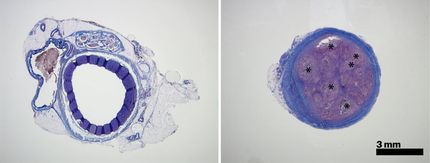New drug could help reduce heart attack risk for cardiac patients awaiting surgery
Advertisement
Heart patients who have stents that prop open blocked arteries often face a dilemma when they need open heart surgery: Continue taking life-saving blood thinners but risk severe bleeding during surgery, or stop taking the medicines and risk a heart attack.
Now, researchers from the University of Florida and elsewhere have identified a new drug that can serve as a “bridge” during that time when patients have to stop taking blood thinners, minimizing both the risk of a heart attack and the risk of excessive bleeding during surgery. The findings appear in the Journal of the American Medical Association.
“This could be a way to satisfy an unmet need and solve a huge clinical problem for millions of patients,” said the study’s lead author, Dominick Angiolillo, M.D., Ph.D., an associate professor of medicine and medical director of the UF Cardiovascular Research Program at the UF College of Medicine-Jacksonville.
Patients who have stents must take aspirin or other blood-thinning medication for at least one year after implantation of the devices. But a problem arises if a patient requires open heart surgery during that year.
The patient must stop taking blood thinners five to seven days before surgery to avoid severe bleeding during surgery. But stopping the medication increases heart attack risk. The need for a short-term “bridge” between traditional medication and heart surgery came to national attention when former President Bill Clinton had a mild heart attack in 2004 and needed bypass surgery. Clinton had to wait six days for surgery because he had been taking aspirin and clopidogrel, commercially sold as Plavix.
Angiolillo and colleagues conducted a two-year international clinical trial to determine whether an experimental intravenous blood-thinning drug called cangrelor can keep patients in good health during the presurgery period in which they stop taking traditional oral medication. The trial was funded by The Medicines Company, which manufactures cangrelor.
The researchers determined the appropriate dosage of the drug then administered it to half of the 210 patients in the study. The other half were given a placebo, which did not contain the drug. Neither patients nor physicians knew to which group a patient was assigned until surgery was needed.
The researchers found that cangrelor can effectively thin the blood to keep heart attack risk low without increasing the risk of major bleeding during surgery. Some cases of minor, non-life threatening bleeding occurred among patients on cangrelor. Since changed to BECAUSE the blood-thinning effects of cangrelor are not as long lasting as for traditional medications such as aspirin and clopidogrel, the risk of heavy bleeding is reduced.
























































